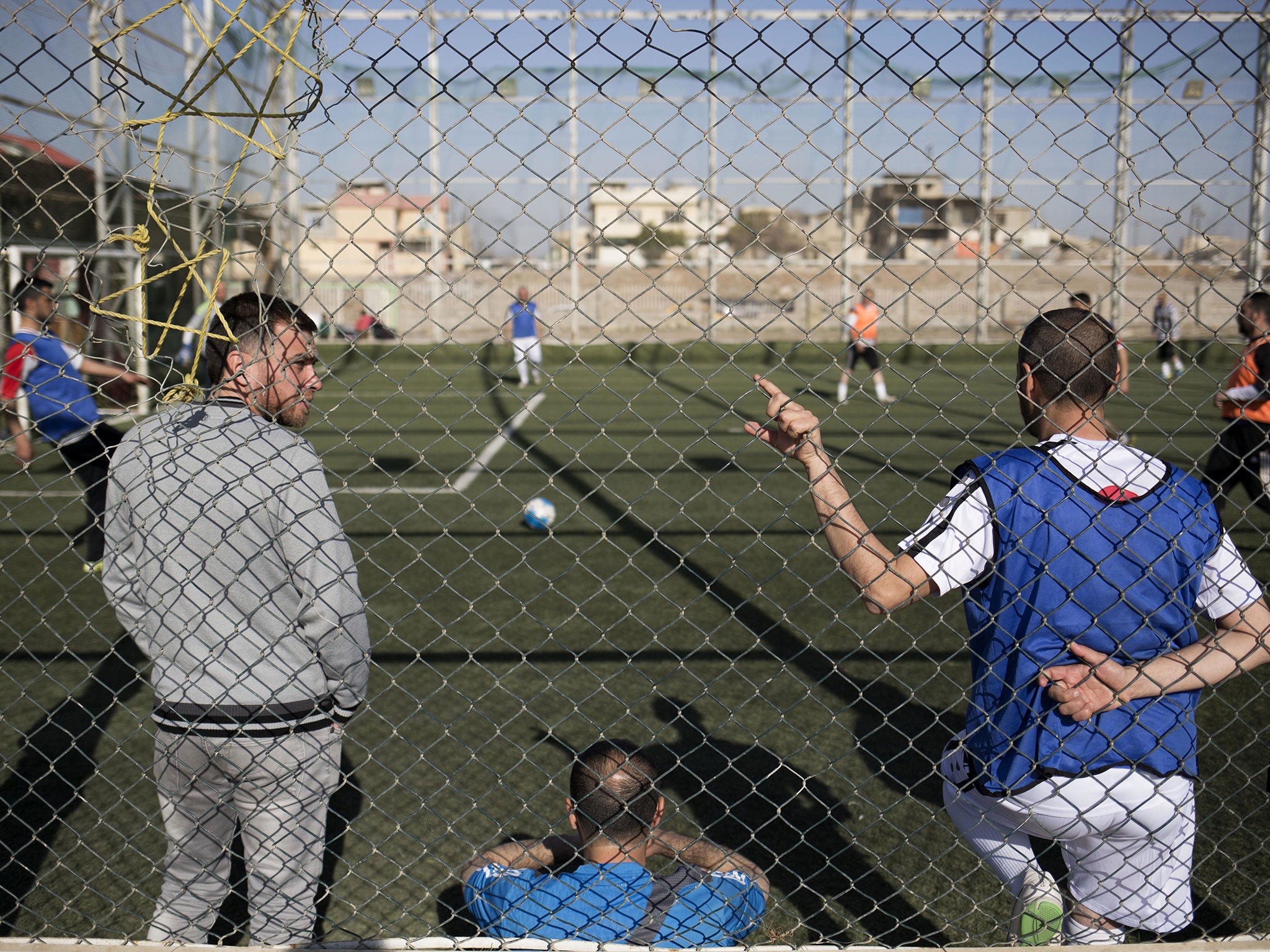Mosul: Liberated Iraqis free to play football without Isis's bizarre rules
'They introduced new rules that never existed in sports before'

Your support helps us to tell the story
From reproductive rights to climate change to Big Tech, The Independent is on the ground when the story is developing. Whether it's investigating the financials of Elon Musk's pro-Trump PAC or producing our latest documentary, 'The A Word', which shines a light on the American women fighting for reproductive rights, we know how important it is to parse out the facts from the messaging.
At such a critical moment in US history, we need reporters on the ground. Your donation allows us to keep sending journalists to speak to both sides of the story.
The Independent is trusted by Americans across the entire political spectrum. And unlike many other quality news outlets, we choose not to lock Americans out of our reporting and analysis with paywalls. We believe quality journalism should be available to everyone, paid for by those who can afford it.
Your support makes all the difference.After months of fighting, Mosul residents can finally play their favourite game again at a football pitch in the eastern part of the city - and this time without the restrictions imposed by Islamic State militants.
The venue was closed for almost four months while Iraqi forces and militants fought a fierce battle for the city.
Signs of war are still visible, with broken windows and damaged fences surrounding the pitch and with holes in the rooftop of the canteen.
"It was closed for three to four months and we reopened after the liberation," said Abu Laith Mohammed, the manager of the football pitch.
The field was allowed to stay open when IS controlled the area, but the militants imposed strict rules on the game, including a dress code that forced players to cut teams' insignia from their shirts and a ban on referees' whistles.
"It wasn't as much fun," said 26-year-old Obeyda Mohammed after he finished a game one afternoon with his friends.
"They introduced new rules that never existed in sports before."
The players were not allowed to wear logos or brand names on football shirts because the militants considered them to be idolatrous.
"I had to stand at the entrance of the pitch with scissors," said 31-year-old Mohammed Sadiq, who works at the football field.
He then had to cut the logos of teams such as Real Madrid and Barcelona from the shirts.
"They called them infidel logos," he said.
Football is very popular in Iraq and many people root for big European teams such as Manchester United, Chelsea or Barcelona.
"We couldn't wear shorts. We had to wear trousers like this," said Obeyda Mohammed, pointing at a tracksuit one of his fellow players was wearing.
"But it had to be baggy, not tight. By the way, the brands and logos of companies like Adidas, Nike and the others were forbidden."
The militants also ordered the referees not to use whistles during the game "because the sound would make the devils gather", the players said.
Trophies and medals were also forbidden because it was thought that they would encourage greed.
Tournaments could not be organised either.
Mohammed Sadiq said there was not a time limit on a match, which under normal rules should last 90 minutes, and IS fighters would typically abandon the game after 15 minutes or so when they did not feel like playing anymore.
Games also had to be stopped for prayers.
"I had to bring prayer mats for the players and put them on the football pitch and lead the prayer for them," he said.
The militants also made the players remove the five Olympic rings from the building because they said it was the sign of infidels.
"We tried to tell them it represented the five continents and had nothing to do with the infidels but it was useless.
"We had to bring a blacksmith with a grinder to cut them off," Mohammed Sadiq said.
Associated Press
Subscribe to Independent Premium to bookmark this article
Want to bookmark your favourite articles and stories to read or reference later? Start your Independent Premium subscription today.
Join our commenting forum
Join thought-provoking conversations, follow other Independent readers and see their replies
Comments